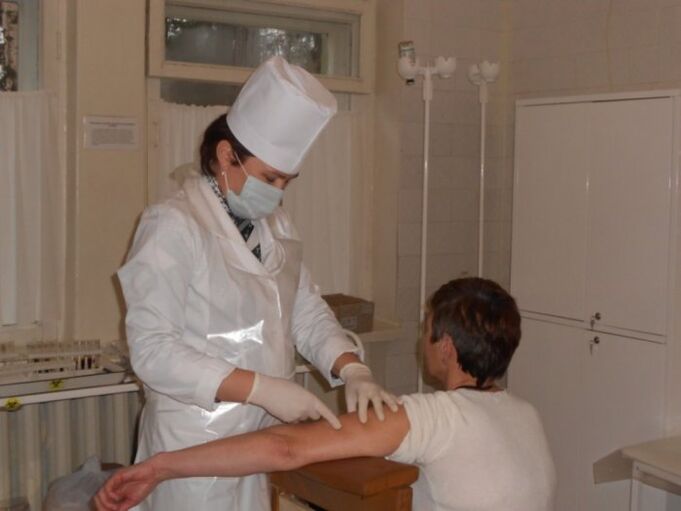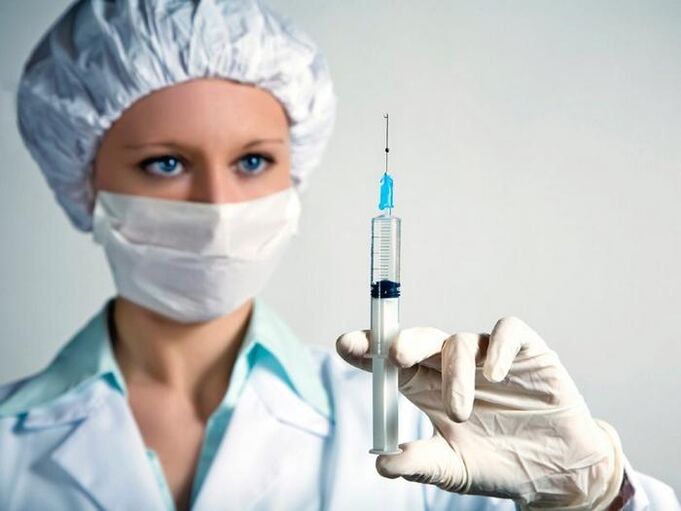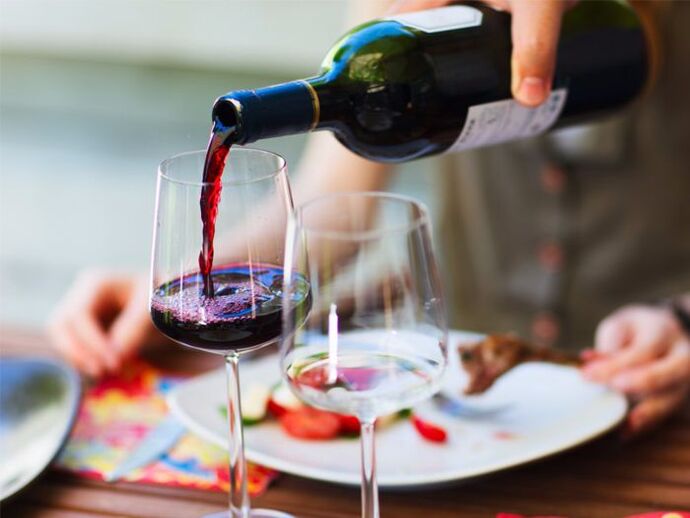Mass vaccination of the population against various diseases is approved by the Ministry of Health. While the vaccination cycle and its medical area used to be three to five names, today the population is offered a vaccination against other diseases such as flu, papillomavirus, etc. In this case, of course, not only children but also adults are vaccinated. This begs the question of whether one can drink after vaccination and, if it is forbidden, why.
Important: Every adult should understand that alcohol and vaccination are absolutely incompatible concepts. The interaction of the drugs administered and the ethanol molecules can lead to the most unexpected results and even death.
Vaccination: definition

Vaccination (vaccination) is the procedure by which microscopic doses of the causative agent of a specific disease are injected into the human body. At such doses, the vaccine is unable to cause the disease in its full manifestation, but it is very active in stimulating immunity, forcing it to withstand the pathogens that have been introduced. The body's immune cells remember a harmful and potential substance and produce antibodies in non-antibodies for a lifetime or for a certain period of time.
Important: The most important requirement for the vaccination is the absolutely healthy condition of the patient. Only in this case will the human body react correctly to the vaccination (predictable from a medical point of view). If a person's immunity is weakened by a disease or other external factors, the immune system fails and the pathogens introduced lead to the activation of the disease against which the patient was vaccinated.
Therefore, for those who would like to know whether it is possible to drink alcohol after vaccination, there is an unequivocal answer: no! Alcohol (beer, vodka, and many other beverages) is a toxic and debilitating factor in the body.
Modern vaccination: types and purposes of vaccinations

To date, there is a list of vaccines that are intended for compulsory or voluntary vaccination. A distinction is therefore made:
- Chickenpox (chickenpox). It should be noted that this type of disease is easier and easier to tolerate in preschool / elementary school children. With the transmission of this type of disease, lifelong immunity is developed. However, if a person did not have chickenpox in childhood, then in adulthood the disease has a severe toxic effect on the body that affects the central nervous system. Therefore, an adult who has not had smallpox should definitely get vaccinated. Especially women.
- Rubella, measles and mumps. This vaccine is given in one injection to preschool and school children. However, if an adult was not vaccinated in childhood and did not suffer from such diseases, it is recommended to vaccinate in old age.
- Whooping cough, tetanus, and diphtheria. This vaccination is carried out every ten years in a person's life.
- Vaccination against various forms of hepatitis. In addition, each patient can freely choose this type of vaccination and the type (form) of hepatitis against which he would like to be vaccinated. So the hepatitis B vaccine is indicated for those who are promiscuous in sexual relationships and who have constant contact (treatment) with injections. Vaccination against hepatitis A is necessary (recommended) and must be given by all health workers, drug addicts, and people with liver disease.
- Papillomavirus (HPV). This vaccination is indicated for all women aged 11 to 26 years. In this case, vaccination is carried out three times.
- Flu shot. This type of vaccine is offered to both adults and children. Such vaccination is relevant during times of seasonal outbreaks of influenza epidemics. It is better to do such vaccination for those who often stay in places with a large (large) congestion of people. It is important to know that after the flu shot, as well as any other vaccine, drinking is strictly prohibited.
- Vaccination against encephalitis. Protects an adult from a terrible neuroinfectious disease transmitted by a tick.
- Rabies vaccine. This is the only vaccination given after an incident that poses a potential threat to a person. That is, after an animal attacks a person. In this case, it is fundamentally impossible to drink alcohol after vaccination because microscopic doses of a deadly virus are injected into the human body for 90 days. During this period it is necessary to completely refrain from alcohol.
Refrain from alcohol after vaccination

Doctors strongly advise against drinking alcohol after vaccination. This strict recommendation is due to the fact that ethanol molecules place a heavy, if not colossal, burden on the human immune system. So, if the patient is interested in the question of whether it is possible to drink alcohol after vaccination, the answer is unequivocal - no! That being said, most patients may wonder how much not to drink after a medical procedure. Doctors recommend abstaining from alcoholic beverages for three days after the vaccination. Ideally, it is best to abstain for up to 10 days. The rabies vaccination is an exception. Here the vaccination time is three months, the duration of the strict and unconditional abstinence must be 9 months. Three of them are intended for vaccinations, the remaining six months the immune system fights the introduced rabies pathogens. In this case, alcohol can have a negative effect and even death.
Possible complications from vaccinations with alcohol

It is important to know that each vaccine has its own specific effect on the human body. Therefore, after vaccination, it is forbidden to drink alcohol, so as not to erase the existing manifestations of negative reactions. In some cases, after vaccination, the following manifestations are noted:
- Joint pain, gag reflex, or allergies may occur after vaccination against hepatitis B.
- Rabies vaccinations can lead to itching, headaches and reddening of the skin.
- It is important to know that the tetanus vaccination is severely immune to suppressing, so it is strongly advised not to quit with alcohol.
Important: remember that by ignoring the recommendations of health workers and consuming alcohol after vaccination, you can clearly mask any negative manifestations of the body for the vaccine itself. As a result, in the event of complications, the patient loses time while doctors try to figure out the true cause of the symptoms.
It should be remembered that taking alcoholic beverages against the background of vaccination can lead to the development of such pathologies:
- Disruption and disorders in the work of the gastrointestinal tract (constipation, diarrhea, dysbiosis);
- Escherichia coli;
- Allergic reaction;
- Increased body temperature and chills;
- Lung and respiratory diseases;
- Nausea and vomiting;
- Decreased activity, general weakness;
- Headache and joint pain;
- Exacerbation of chronic diseases;
- Quincke edema and anaphylactic shock.
Remember: be vigilant and condescending with yourself and your health. Now you know why you shouldn't drink or drink very little after vaccination.

































